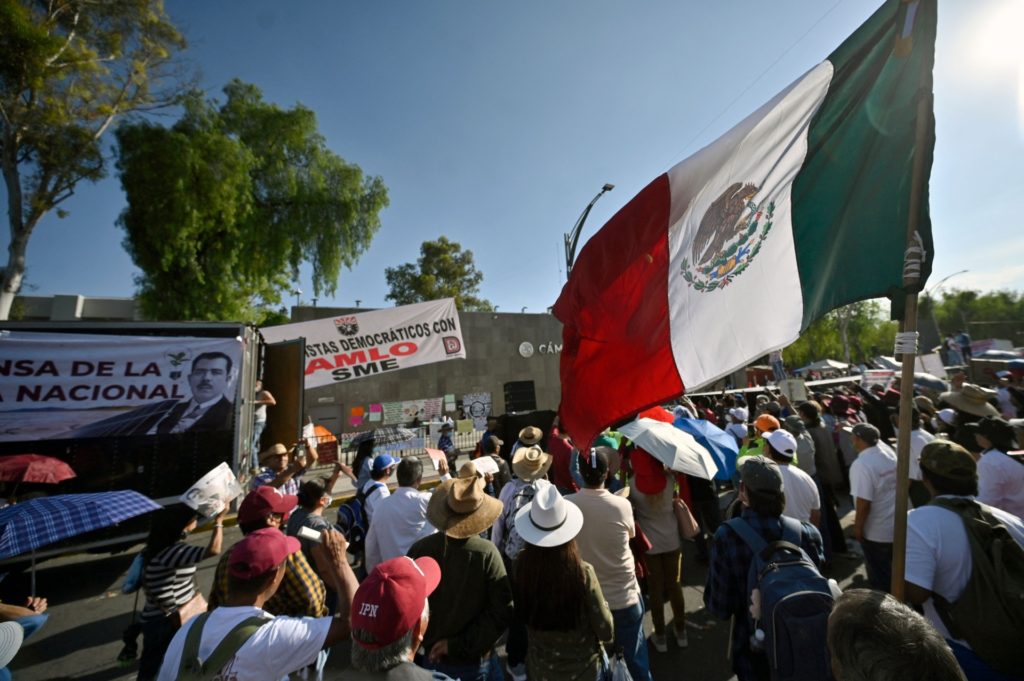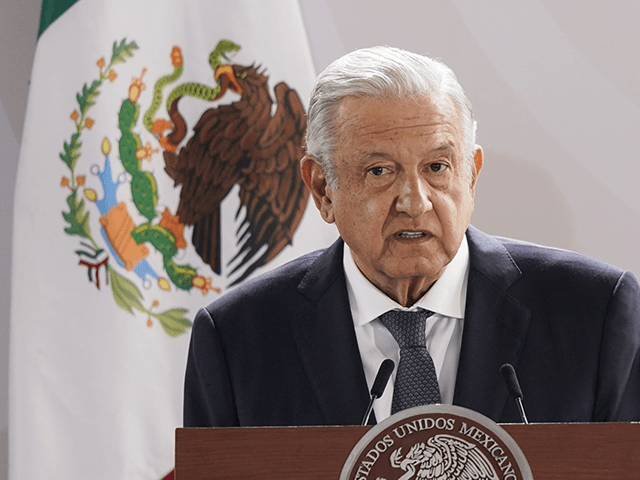The Mexican Senate voted 87-20 on Tuesday to amend mining laws to nationalize reserves of lithium, a key component of batteries, including those used in electric cars.
Mexico’s reserves could make it one of the world’s top suppliers of lithium, if they are fully developed.
Mexico’s leftist President Andrés Manuel López Obrador said last week he would fast-track the bill to classify lithium as a “strategic material,” locking private companies out of exploration and mining for the vital mineral, if lawmakers did not approve his plan to tighten state control over Mexico’s electricity market.
López Obrador’s power grab would have increased state control over the Mexican electricity market from 38 to 54 percent, wiping out a number of big-ticket contracts with private companies. The president claimed critics of his plan were putting the interests of big corporations ahead of Mexican citizens.

This photo taken on March 12, 2021 shows a worker with car batteries at a factory for Xinwangda Electric Vehicle Battery Co. Ltd, which makes lithium batteries for electric cars and other uses, in Nanjing in China’s eastern Jiangsu province. (STR/AFP via Getty Images)
The U.S. government strongly opposed the plan, saying the measures would violate regional trade deals and have negative “impacts on North American competitiveness.”
The Biden administration was also concerned that Mexico would turn away from green energy development, which was largely spearheaded by private firms, and increase its use of cheaper coal and gas power. López Obrador dismissed such criticism as foreign meddling in Mexican affairs.
“Lopez Obrador has dug in rather than negotiating with U.S. officials, evidently calculating that he can afford to alienate parts of the Mexican and U.S. business class so long as he maintains the support of his most faithful base: poor voters in southern Mexico,” Foreign Policy explained last week.

Supporters of the Mexican president, demonstrate in favour of a proposed electricity sector reform he promoted as deputies hold a plenary session to vote on whether to approve it or not, outside the Chamber of Deputies, in Mexico City on April 17, 2022. (ALFREDO ESTRELLA/AFP via Getty Images)
The Mexican president’s bid to increase state control of the power grid was defeated on Sunday, falling 60 votes short of the two-thirds majority needed, even though the president’s Morena party and its allies dominate the legislature. López Obrador made good on his threat and pushed ahead with the bill to nationalize lithium mining, which required fewer votes to pass because it did not require amending the constitution.
“I believe that yesterday was an act of treason against Mexico committed by a group of legislators who, instead of defending the interests of the people … became outright defenders of foreign companies,” the frustrated president thundered after his defeat on Sunday.
No sooner had Tuesday’s nationalization vote passed than López Obrador announced his administration would abandon earlier promises to private firms and begin reviewing eight lithium mining concessions that were already granted. “The lithium is ours,” he insisted.
Presidential spokesman Jesús Ramírez said lithium will henceforth “be the exclusive property of the state and for the benefit of the people.”
“Our resources will be safe and the energy transition will be guaranteed,” Ramírez said.
Mexico does not currently produce any lithium and, since most of its mining projects are still attempting to determine the ease and profitability of exploiting its deposits, it could take 20 years for exports to reach their full potential.
Once they are fully developed, Mexico’s estimated lithium reserves could make it one of the world’s top five producers. A deposit in Sonora weighs in as the largest in the world at over 243 million tons.
An interesting wrinkle is that only one lithium mine in Mexico is close to beginning production and that mine is operated by a subsidiary of a Chinese battery company, Genfeng Lithium. Genfeng has invested almost $28 million in the Sonora project and plans to begin producing 35,000 metric tons of lithium per year in 2023.
China dominates the global supply chain for lithium, and would probably be enraged if the Mexican government moves to nationalize the Sonora mine. It was not immediately clear if López Obrador plans to do so.

COMMENTS
Please let us know if you're having issues with commenting.